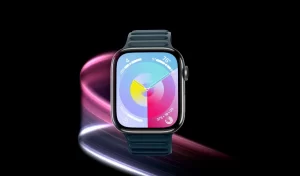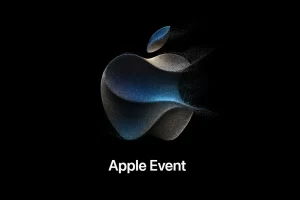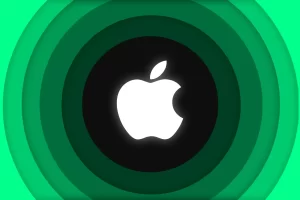In 2017, Apple CEO Tim Cook sent shockwaves through the global auto industry when he confirmed that the tech giant was working on a driverless car. This announcement sparked excitement and speculation about Apple’s entry into the electric and autonomous vehicle market. However, after years of anticipation and development, Apple ultimately decided to cancel its secretive car project. This decision reflects the challenges and realities facing the electric and autonomous vehicle industry as a whole.
The Initial Buzz For The Apple Car
Apple’s foray into the automotive industry, codenamed Project Titan, generated immense interest and curiosity among consumers and industry experts alike. Tim Cook acknowledged that autonomous systems, particularly self-driving cars, were a focal point of Apple’s technological ambitions. The company saw this venture as the “mother of all AI projects” and an opportunity to push the boundaries of innovation. Despite the initial excitement, the Apple Car remained a nebulous concept that never fully materialized beyond the imagination of the company’s most devoted fans.
Wall Street Skepticism and Investor Reactions
From the outset, Wall Street remained skeptical of Apple’s venture into the automotive industry. Many viewed it as an expensive distraction with numerous pitfalls. The decision to cancel the Apple Car project was met with praise from investors and industry analysts. Dan Ives of Wedbush applauded Apple for “ripping the band-aid off” and described it as the right move for the company’s future. Morgan Stanley analysts also commended Apple for focusing on what truly mattered and exhibiting cost discipline. The sentiment among investors indicated that Apple’s resources would be better allocated to other projects within its wheelhouse.
Bleak Outlook for Electric and Autonomous Vehicles
Apple’s decision to pull the plug on the Apple Car coincided with a broader, less optimistic outlook for the electric and autonomous vehicle industry. After years of promising the dominance of battery-powered and driverless vehicles, the industry faced significant growing pains. Investments were reined in, factories were put on hold, and model lineups were canceled.
Pure electric vehicle manufacturers, such as Rivian and Lucid, struggled to find customers as affordability became an increasing concern. Consumers sought more affordable options or hedged their bets with hybrid vehicles. Apple, known for its premium positioning, would have faced similar challenges in penetrating an increasingly tight premium market. Sam Abuelsamid, principal analyst at Guidehouse Insights, highlighted the affordability issue as a significant hurdle for Apple in the electric vehicle space.
The Complexities of Autonomy
Developing a fully autonomous vehicle proved to be an even more daunting task for Apple. The experiences of various robotaxi companies in California, which faced numerous challenges including accidents and safety concerns, highlighted the complexities involved in autonomous driving. Apple, always conscious of its brand image, likely aimed to avoid similar pitfalls and negative headlines.
Apple’s Progress and Competitor Advancements
While Apple made some progress in developing the hardware and software for autonomous driving, it never managed to catch up with rivals who had a head start in the industry. The company operated a small fleet of vehicles in California and even released a safety report to federal regulators. However, Apple never obtained a permit to operate its vehicles without safety drivers in the front seat, and the size of its fleet remained relatively stagnant.
The Elusive Partnerships and Shifting Focus
Throughout the development of the Apple Car, rumors circulated about potential partnerships with established automakers such as BMW, Volkswagen, Hyundai, and Nissan. However, none of these rumored deals materialized, leaving Apple without a manufacturing partner. Ultimately, Apple pivoted its focus towards software and acquired Drive.AI, a startup specializing in self-driving technology, just before it ran out of cash. The company faced challenges in determining the leadership and direction of the project, which further complicated its development.
Change in Strategy: Level 2+ ADAS
In January, top executives at Apple mandated a change in strategy for Project Titan. Instead of pursuing fully autonomous vehicles, Apple shifted its focus to Level 2+ ADAS (Advanced Driver Assistance Systems). This decision aligned with the offerings of companies like Tesla and GM, which had already deployed similar technologies in their vehicles. The launch of Apple’s ADAS-equipped cars was planned for 2028. However, just weeks later, Apple made the surprising announcement to cancel the project altogether, leaving the Apple Car as a missed opportunity.
Also Read : AppleGPT: Apple’s Secret Competitor To ChatGPT
Conclusion: Lessons Learned and Future Prospects
The rise and fall of the Apple Car project serve as a cautionary tale in the rapidly evolving electric and autonomous vehicle industry. Apple’s journey demonstrated the challenges of venturing into a complex and highly competitive market, where established automakers and technology companies have already made significant strides. The cancellation of the Apple Car underscores the importance of strategic decision-making, adaptability, and a clear focus on addressing market demand and affordability.
While the Apple Car may never see the light of day, Apple’s expertise in software and AI could still play a crucial role in shaping the future of transportation. The company’s decision to pivot towards Level 2+ ADAS reflects a more pragmatic approach that aligns with the offerings of other industry players. As the electric and autonomous vehicle market continues to evolve, lessons learned from the rise and fall of the Apple Car project will undoubtedly inform future endeavors in this dynamic and challenging industry.
Source: The Verge






